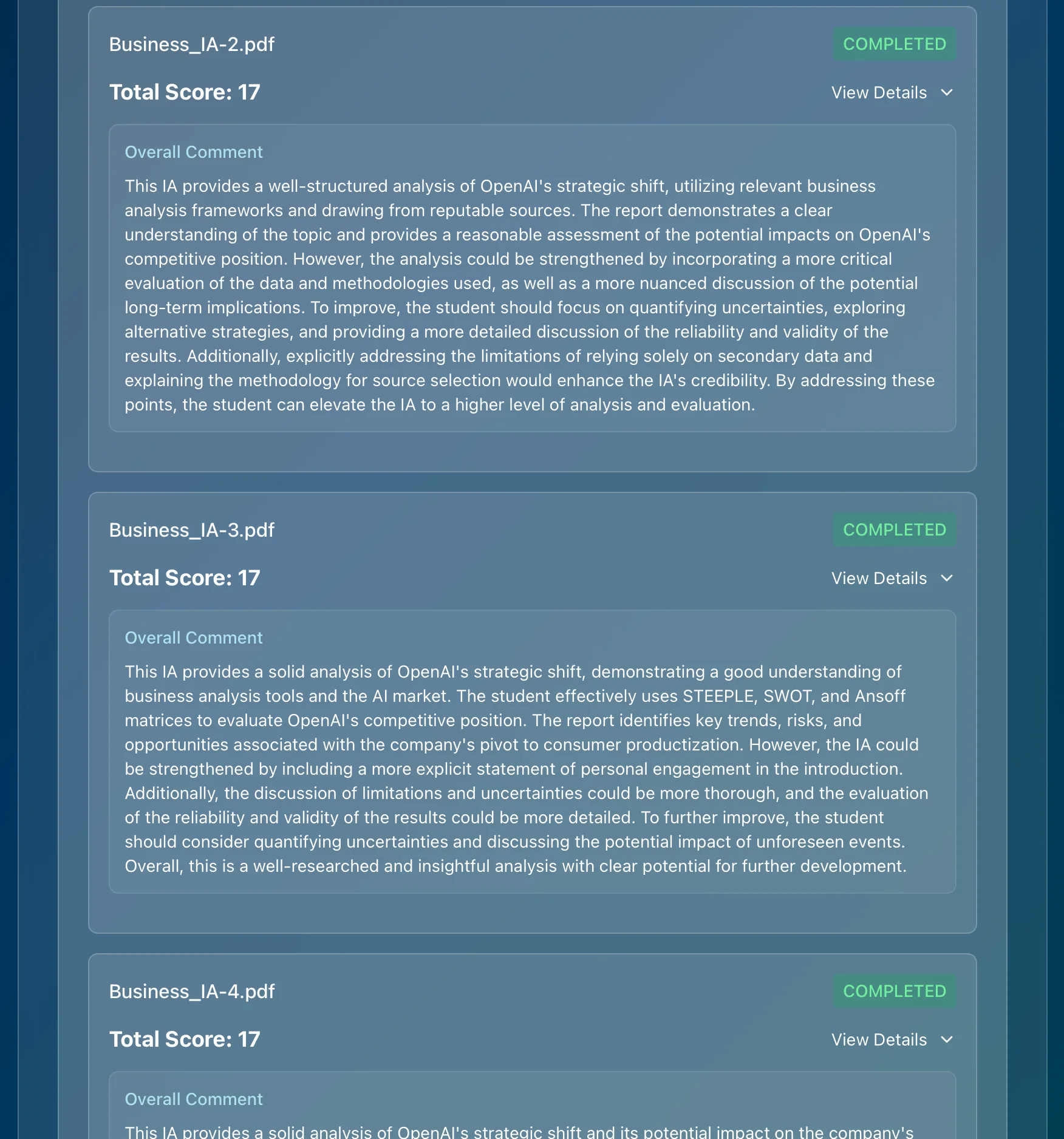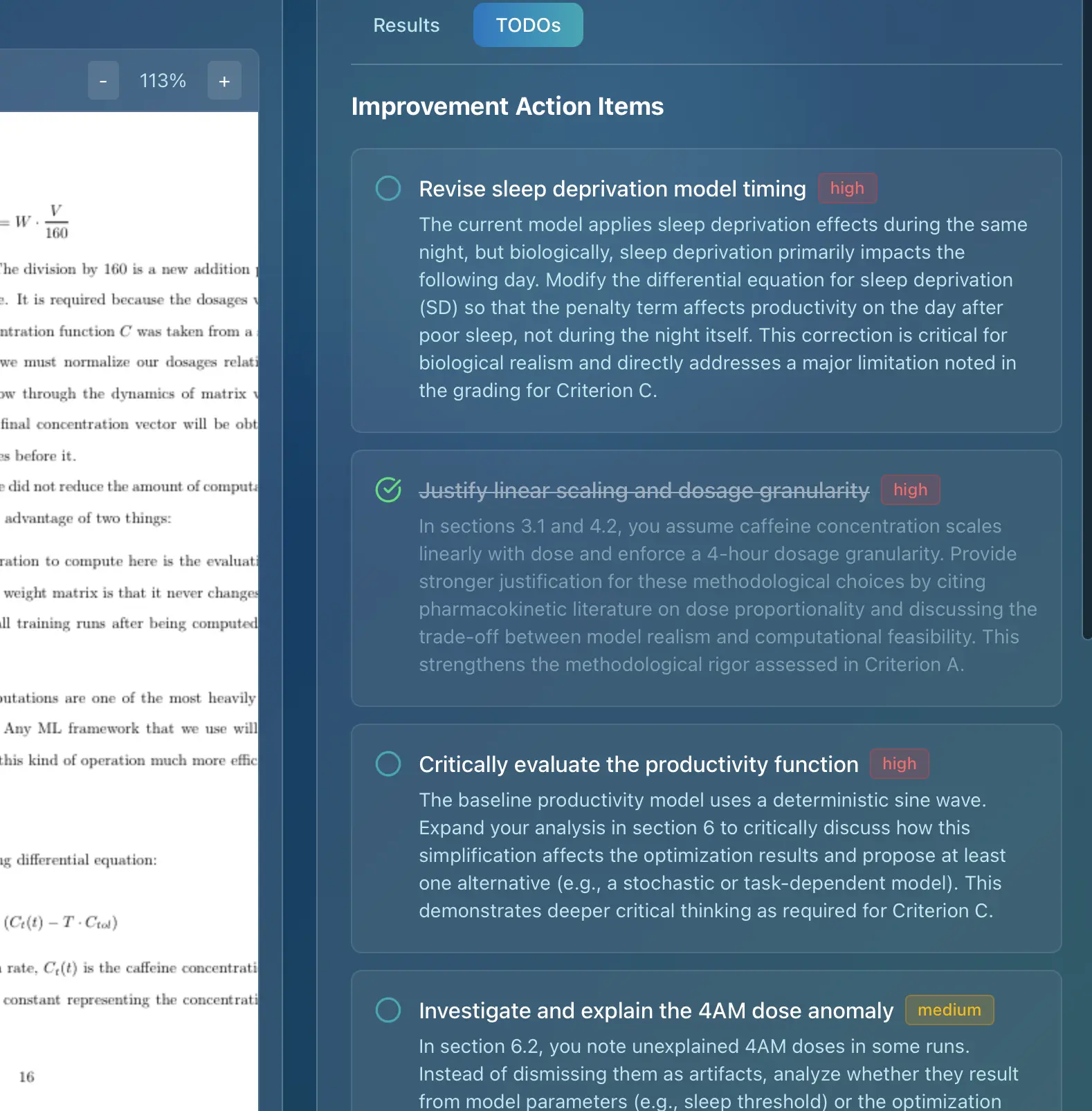How to Write a Winning IB Extended Essay in Biology
Are you an IB Biology student aiming for a stellar grade on your Extended Essay? This comprehensive guide will equip you with the knowledge and strategies you need to craft a winning essay. We'll cover everything from choosing the right topic and formulating a strong research question to conducting thorough research, analyzing your data, and presenting your findings effectively. This guide will provide you with actionable advice and examples to help you navigate the complexities of the IB Biology Extended Essay and achieve your academic goals. Let's dive in!
Introduction (Answer the Query Immediately)
The IB Biology Extended Essay (EE) is a significant undertaking, representing a substantial piece of independent research and writing. It's your opportunity to delve deep into a biological topic that genuinely interests you, showcasing your understanding of scientific methodology and your ability to analyze and evaluate complex data. This guide will provide you with a step-by-step approach to crafting a high-scoring essay, covering everything from topic selection and research question development to data analysis and presentation. We'll also highlight common pitfalls to avoid and offer advanced strategies to help you stand out. Whether you're just starting your EE journey or looking to refine your existing work, this guide is your go-to resource for success.
Struggling with IB Assessments?
Get instant, detailed feedback on your work with AI that understands IB criteria.

Core Content Sections
Choosing the Right Topic: Setting the Stage for Success
Selecting a suitable topic is the first and arguably most crucial step in writing a winning IB Biology Extended Essay. A well-chosen topic should be:
- Of genuine interest to you: You'll be spending a significant amount of time researching and writing about this topic, so it's essential to choose something you're passionate about.
- Specific and focused: Avoid broad topics that are difficult to explore in depth within the word limit.
- Researchable: Ensure there is sufficient literature and data available to support your investigation.
- Ethically sound: Avoid topics that involve unethical experiments or harm to living organisms.
Example: Instead of a broad topic like "The Effects of Pollution," consider a more focused topic like "The Impact of Microplastics on the Growth Rate of Daphnia magna."
Actionable Tip: Brainstorm a list of potential topics based on your interests and then evaluate each one based on the criteria above. Consult with your IB Biology teacher for guidance.
Formulating a Strong Research Question: The Heart of Your Investigation
A well-defined research question is the cornerstone of a successful IB Biology Extended Essay. It should be:
- Clear and concise: Easily understood and focused on a specific aspect of your chosen topic.
- Answerable: Feasible to investigate within the constraints of resources, time, and word limit.
- Testable: Amenable to scientific investigation through experimentation or data analysis.
Example: Instead of a vague question like "How does exercise affect the body?", consider a more specific and testable question like "To what extent does the intensity of aerobic exercise affect the heart rate recovery time in healthy adults aged 18-25?"
Actionable Tip: Use the "PICO" framework (Population, Intervention, Comparison, Outcome) to help you formulate a strong research question.
Conducting Thorough Research: Gathering the Evidence
Once you have a research question, it's time to conduct thorough research to gather the evidence you need to support your investigation. This involves:
- Consulting a variety of sources: Peer-reviewed scientific journals, textbooks, reputable websites, and databases.
- Evaluating the credibility of your sources: Ensure your sources are reliable and authoritative.
- Taking detailed notes: Summarize key findings, record citations, and organize your information effectively.
Example: Use databases like PubMed, Google Scholar, and Web of Science to find relevant research articles.
Actionable Tip: Create a detailed research log to track your sources, notes, and ideas.
Designing Your Methodology: A Clear and Logical Approach (Criterion A)
Your methodology should be clearly outlined and justified. This section explains how you will answer your research question. It should include:
- A detailed description of your experimental design or data collection methods: Be specific about the materials, procedures, and controls you will use.
- A rationale for your chosen methodology: Explain why your approach is appropriate for addressing your research question.
- Consideration of ethical issues: Address any potential ethical concerns and explain how you will mitigate them.
Example: If you're investigating the effect of different fertilizers on plant growth, your methodology should specify the type of plants, the types of fertilizers, the amount of fertilizer used, the duration of the experiment, and the environmental conditions.
Actionable Tip: Replicate your experiment multiple times to ensure the reliability of your results.
Analyzing Your Data and Interpreting Results: Unveiling the Story (Criterion C)
Data analysis is a critical component of your IB Biology Extended Essay. You need to:
- Present your data clearly and effectively: Use tables, graphs, and figures to summarize your findings.
- Apply appropriate statistical analysis: Use statistical tests to determine the significance of your results.
- Interpret your results in the context of your research question: Explain what your data means and how it relates to your hypothesis.
Example: If you're investigating the effect of temperature on enzyme activity, you might use a t-test to compare the enzyme activity at different temperatures.
Actionable Tip: Consult with your IB Biology teacher or a statistician for guidance on choosing the appropriate statistical tests.
Demonstrating Knowledge and Understanding (Criterion B)
Throughout your essay, demonstrate a strong understanding of the underlying biological concepts. This includes:
- Using appropriate terminology: Define and use technical terms accurately.
- Integrating relevant background information: Provide context for your research and explain the significance of your findings.
- Connecting your research to broader biological principles: Show how your work contributes to the overall understanding of biology.
Example: When discussing enzyme activity, explain the role of enzymes as biological catalysts and how factors like temperature and pH can affect their function.
Actionable Tip: Review your IB Biology textbook and other resources to ensure you have a solid understanding of the relevant concepts.
Structuring Your Essay: A Clear and Coherent Narrative (Criterion D)
A well-structured essay is essential for conveying your ideas effectively. Your IB Biology Extended Essay should typically include the following sections:
- Title Page: Includes the essay title, your name, candidate number, and school.
- Abstract: A brief summary of your research question, methodology, results, and conclusions.
- Table of Contents: Lists the sections and subsections of your essay with corresponding page numbers.
- Introduction: Introduces your topic, provides background information, and states your research question.
- Methodology: Describes your experimental design or data collection methods.
- Results: Presents your findings in a clear and organized manner.
- Discussion: Interprets your results, discusses their significance, and evaluates the strengths and weaknesses of your investigation.
- Conclusion: Summarizes your key findings and provides concluding remarks.
- References: Lists all the sources you cited in your essay.
- Appendices (optional): Includes supplementary materials such as raw data or detailed calculations.
Actionable Tip: Use headings and subheadings to organize your essay and make it easy for the reader to follow your argument.
The Importance of Presentation (Criterion D)
Presentation matters! A well-presented essay is easier to read and understand, and it demonstrates your attention to detail. Pay attention to:
- Formatting: Use a consistent font, font size, and spacing throughout your essay.
- Referencing: Use a consistent referencing style (e.g., MLA, APA) and cite all your sources accurately.
- Visual aids: Use clear and appropriately labelled graphs, figures, and tables to illustrate your findings.
Actionable Tip: Proofread your essay carefully for grammar, spelling, and punctuation errors.
Engagement and Reflection (Criterion E)
The Reflections on Planning and Progress Form (RPPF) is a crucial part of your Extended Essay. It allows you to reflect on your research process, discuss the challenges you faced, and explain how you overcame them. Be honest and reflective in your RPPF, and demonstrate your engagement with the research process.
Actionable Tip: Keep a journal throughout your EE process to document your progress, challenges, and reflections.
Common Challenges/Mistakes Section
- Choosing a topic that is too broad or too narrow: A topic that is too broad will be difficult to explore in depth within the word limit, while a topic that is too narrow may not provide enough scope for investigation.
- Formulating a research question that is not testable: A research question that is not testable cannot be investigated using scientific methods.
- Failing to conduct thorough research: Insufficient research can lead to inaccurate or incomplete findings.
- Using unreliable sources: Using unreliable sources can undermine the credibility of your essay.
- Failing to analyze data properly: Improper data analysis can lead to incorrect conclusions.
- Plagiarism: Plagiarism is a serious academic offense that can result in a failing grade.
- Poor time management: Procrastination can lead to rushed and poorly written essays.
Actionable Tip: Start working on your Extended Essay early and break it down into smaller, manageable tasks.
Pro Tip: Get AI-Powered Grading
Stop second-guessing your grades. Get instant feedback aligned with official IB rubrics.

Advanced Tips/Strategies Section
- Go beyond the textbook: Explore cutting-edge research in your chosen field.
- Consult with experts: Seek guidance from professors, researchers, or professionals in your area of interest.
- Develop a strong argument: Present a clear and compelling argument that is supported by evidence.
- Critically evaluate your own work: Identify the strengths and weaknesses of your essay and revise accordingly.
- Seek feedback from others: Ask your IB Biology teacher, classmates, or family members to read your essay and provide feedback.
Technology and Modern Assessment Section
Technology is transforming the way we approach IB assessments, including the Extended Essay. AI-powered tools can assist with various aspects of the research process, from literature reviews to data analysis. However, it's crucial to use these tools responsibly and ethically, ensuring that you maintain academic integrity.
One of the biggest challenges for IB teachers is providing consistent, detailed, and rubric-aligned feedback on student work. This is where Marksy, as a leading AI grading assistant, can be a game-changer. Marksy uses official IB criteria to provide instant, accurate, and detailed feedback on Extended Essays, saving teachers valuable time and helping students understand exactly how to improve their work. By providing criterion-by-criterion feedback and suggestions for improvement, Marksy ensures that students receive the guidance they need to achieve their full potential. AI tools like Marksy use official IB rubrics to ensure accuracy and fairness, providing students with a clear understanding of their strengths and weaknesses.
Conclusion with Clear Next Steps
Writing a winning IB Biology Extended Essay requires careful planning, thorough research, and a strong understanding of scientific methodology. By following the tips and strategies outlined in this guide, you can increase your chances of achieving a top score. Remember to choose a topic that interests you, formulate a strong research question, conduct thorough research, analyze your data effectively, and present your findings clearly and coherently.
Next Steps:
- Brainstorm potential topics and consult with your IB Biology teacher.
- Develop a detailed research plan and timeline.
- Start conducting research and gathering data.
- Analyze your data and interpret your results.
- Write a first draft of your essay and seek feedback from others.
- Revise and edit your essay carefully.
- Submit your final essay on time.
Ready to take your IB Biology Extended Essay to the next level? Try Marksy for free today and experience the power of AI-powered grading assistance! See how Marksy can help you improve your IB scores or streamline your grading workflow.